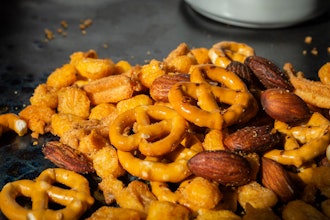LONDON (BUSINESS WIRE) — Technavio’s latest global organic drinks market report highlights three key emerging trends predicted to impact market growth from 2016-2020. Technavio defines an emerging trend as something that has potential for significant impact on the market and contributes to its growth or decline.
“In North America, more than 3 million hectares of farmland were managed organically in 2012; of these 2.2 million, were in the US and 0.8 million in Canada, representing approximately 0.7% of the total agricultural area in the NA region and 8% of the world's organic agricultural land. Proximity to arable land and organic crops therefore make the North America region a key consumer of organic drinks,” said Vijay Sarathi, one of Technavio’s lead industry analysts for non-alcoholic beverages.
“Tightening government regulations regarding the use of artificial flavors and ingredients in foods, and rapidly expanding and widening organic food distribution channels are some of the key factors anticipated to increase the demand for organic foods and beverages across the globe,” added Vijay.
Technavio’s market research study identifies the following three emerging trends expected to propel the growth of the global organic drinks market:
- Increase in product innovations
- Rise in the number of private label brands
- Organic alcohol
Increase in product innovations
New offerings, specifically healthier variants. In 2015, Honest Tea offered three new varieties in its zero-calorie beverage offerings in the US; two unsweetened, caffeine-free herbal iced teas and a zero-calorie organic soda. Cinnamon Sunrise and Ginger Oasis are the company's latest herbal tea offerings. With investment by Coca-Cola in Suja, the organic juice company, there are more launches lined up.
High Pressure Processing (HPP) technology enables preservation of drinks for longer without altering nutrition and taste. Many leading vendors have started to employ this technology to enhance the shelf life of their organic drinks offerings. In 2015, Ginger Shots, a popular brand of all-natural, ginger-based drinks, launched four new organic varieties with a shelf life of 45 days, and available at select Whole Foods stores. In December 2015, PepsiCo launched a food and beverage vending initiative called Hello Goodness, which dispenses healthier food and beverage products categorized as “good-for-you” and “better-for-you.” Many similar initiatives will likely spur the growth of organic drinks until 2020.
Rise in the number of private label brands
Private label products are those manufactured and sold by retailers. Private label organic drink brands are gaining in prominence globally. They are priced lower than branded products,and the emergence of brands such as Kroger’s Simple Truth, Supervalu’s Wild Harvest, and Aldi’s Simply Nature highlight how the private label category is evolving. Some retailers have expanded their portfolios to even include premium products and brands in the organic and natural segment.
In 2013, private labels accounted for almost a fifth of the USD 530 billion food and beverage market. The number is expected to grow at a projected CAGR of 4% and reach a market size of close to USD122 billion by 2018.
Wal-Mart, Tesco, and Safeway, with their special organic food products, have entered this market to target the health-conscious shopper. Amazon is expected to offer a comprehensive list of organic products at competitive price points. The availability of private label brands is a trend that is expected to drive the growth of the global organic drinks market during the forecast period.
Organic alcohol
Organic alcohol is produced from products free of pesticides and fertilizers, and chemicals that can potentially increase the risk of cancer and other health problems. Organic beers and wines are expected to grow at a rate of 24.5% from 2013 to 2019. Organic craft beers have also witnessed a surge in popularity over the years. There has been a growth of around 20.7% in the sales of organic craft beer in volumes between December 2013 and December 2014.
Organic labels do not emphasize taste, but consumers are attracted by the quality of ingredients. USDA standards stipulate that at least 95% of the ingredients (usually barley and hops) in organic beer are grown without the use of chemicals and pesticides.
Although more expensive and time-consuming to produce, many breweries are expected to launch organic labels to carve out a niche for themselves in the extremely competitive beer market.
About Technavio
Technavio is a leading global technology research and advisory company. The company develops over 2000 pieces of research every year, covering more than 500 technologies across 80 countries. Technavio has about 300 analysts globally who specialize in customized consulting and business research assignments across the latest leading edge technologies.






















